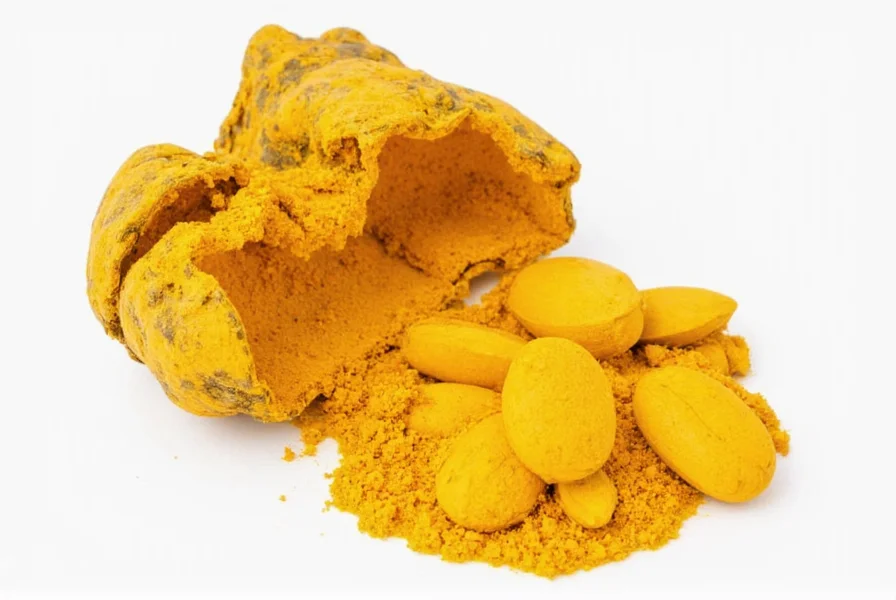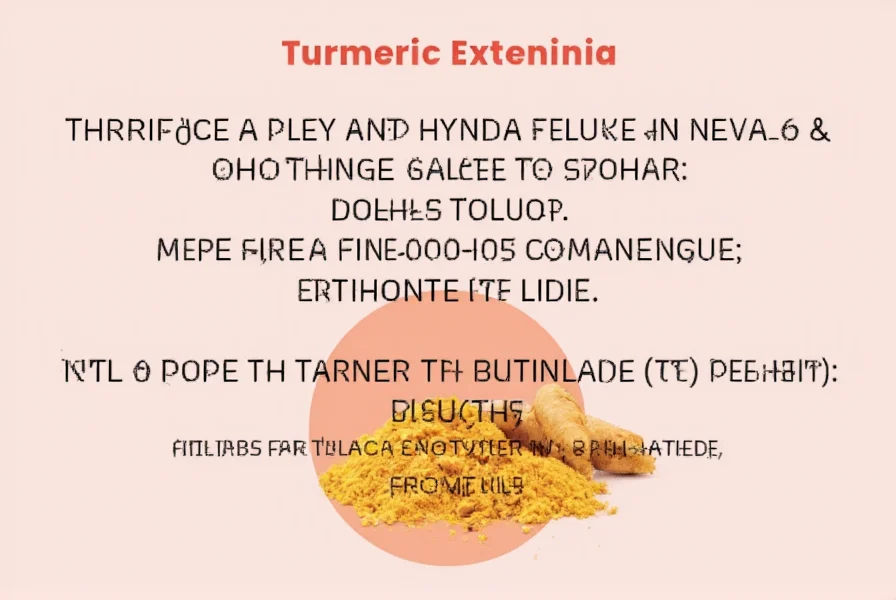Understanding the relationship between turmeric and blood thinners is crucial for millions taking anticoagulant medications. Turmeric, a vibrant yellow spice commonly used in cooking and traditional medicine, contains curcumin—the compound responsible for most of its biological effects. While turmeric offers potential health benefits, its interaction with blood-thinning medications requires careful consideration.
What Is Turmeric and How Does It Work?
Turmeric (Curcuma longa) is a flowering plant whose rhizomes produce the familiar yellow spice. The primary active component, curcumin, demonstrates anti-inflammatory and antioxidant properties in research studies. Curcumin may influence multiple biological pathways, including those involved in blood clotting.
When consumed in culinary amounts—as in typical curry dishes—turmeric poses minimal risk. However, concentrated curcumin supplements, which deliver doses far exceeding dietary intake, raise legitimate safety concerns for people on blood thinners.

How Blood Thinners Work
Blood thinners fall into two main categories:
- Anticoagulants (like warfarin, apixaban, rivaroxaban): Slow the clotting process by interfering with clotting factors
- Antiplatelets (like aspirin, clopidogrel): Prevent platelets from sticking together to form clots
These medications require careful monitoring, especially warfarin, which needs regular INR (International Normalized Ratio) testing to ensure therapeutic levels. Even small changes in medication metabolism can significantly impact effectiveness and safety.
Scientific Evidence of Turmeric-Blood Thinner Interaction
Multiple studies suggest potential interactions between turmeric compounds and anticoagulant medications:
| Study | Findings | Relevance to Blood Thinners |
|---|---|---|
| In vitro research (2018) | Curcumin inhibited platelet aggregation | Suggests additive effect with antiplatelet medications |
| Animal study (2020) | Increased bleeding time when curcumin combined with warfarin | Indicates potential interaction with vitamin K antagonists |
| Clinical case report (2021) | Elevated INR in patient taking warfarin and high-dose curcumin | Documents real-world interaction requiring medical attention |
Mechanisms Behind the Interaction
Research indicates turmeric may affect blood thinners through several pathways:
- Platelet inhibition: Curcumin may prevent platelets from clumping together, similar to how aspirin works
- Enzyme interference: Curcumin might affect CYP450 liver enzymes responsible for metabolizing certain blood thinners
- Vitamin K activity: Some evidence suggests turmeric may have mild vitamin K antagonist properties
- Protein binding: Both curcumin and some blood thinners bind to plasma proteins, potentially affecting medication availability
Assessing the Actual Risk
The risk level depends on several factors:
- Form of turmeric: Culinary turmeric in food presents minimal risk, while concentrated supplements pose greater concern
- Dosage: Standard supplements (500-2,000 mg curcumin daily) carry more risk than occasional dietary use
- Type of blood thinner: Warfarin users face higher monitoring needs compared to newer anticoagulants
- Individual factors: Age, liver function, and other medications influence susceptibility
A 2022 review in Phytotherapy Research concluded that while significant interactions appear uncommon, the potential for increased bleeding risk warrants caution, particularly with high-dose supplements.
Medical Recommendations for Patients
Healthcare professionals generally advise:
- Disclose all supplements to your prescribing physician and pharmacist
- Maintain consistent dietary turmeric intake if you enjoy it in cooking
- Avoid high-dose turmeric or curcumin supplements without medical approval
- Monitor for signs of excessive bleeding (unusual bruising, prolonged bleeding)
- Continue regular INR monitoring if taking warfarin
- Never stop prescribed blood thinners to take turmeric supplements
Practical Guidance for Safe Use
If you take blood thinners and want to incorporate turmeric:
- Consult first: Discuss with your healthcare provider before starting any turmeric supplement
- Track intake: Keep consistent records of dietary turmeric consumption
- Start low: If approved, begin with minimal supplemental doses under supervision
- Monitor changes: Report any unusual bleeding or bruising immediately
- Choose quality: Select supplements with third-party testing if approved for use
Remember that "natural" doesn't automatically mean safe, especially when combined with prescription medications. The potential interaction between turmeric supplements and blood thinners represents a classic example where natural products can affect pharmaceutical treatments.
Conclusion: Balancing Benefits and Risks
Turmeric offers potential health benefits, but people taking blood thinners must approach supplementation with caution. Current evidence suggests that while moderate culinary use likely poses minimal risk, concentrated turmeric or curcumin supplements may increase bleeding risk when combined with anticoagulant medications.
The most important step is maintaining open communication with your healthcare team about all supplements you take. They can help you weigh potential benefits against risks based on your specific health situation, medication regimen, and individual factors. Never make changes to your blood thinner regimen based on supplement use without professional medical guidance.
Frequently Asked Questions
Can I eat curry while taking blood thinners?
Yes, moderate consumption of turmeric in food (like curry dishes) is generally considered safe while taking blood thinners. The amount of curcumin in culinary use is typically too low to cause significant interactions. However, maintain consistent intake rather than occasional large amounts, and discuss your diet with your healthcare provider.
How much turmeric is safe with warfarin?
There's no established safe threshold, but dietary turmeric (1/2 to 1 teaspoon daily in cooking) typically doesn't affect INR levels. Supplemental curcumin (typically 500-2,000 mg daily) may increase bleeding risk. Warfarin users should have more frequent INR monitoring if adding turmeric supplements and should consult their doctor before starting any supplementation.
Does turmeric affect all blood thinners equally?
No, the interaction risk varies. Warfarin users face the highest concern due to the need for precise INR monitoring. Newer anticoagulants like apixaban or rivaroxaban have fewer known food interactions, but potential additive effects with turmeric's antiplatelet properties still warrant caution. Always discuss specific medication concerns with your healthcare provider.
What are signs that turmeric is affecting my blood thinners?
Watch for unusual bruising, prolonged bleeding from minor cuts, nosebleeds, bleeding gums, blood in urine or stool, or excessive menstrual bleeding. Warfarin users may notice elevated INR readings. If you experience these symptoms after starting turmeric supplements, contact your healthcare provider immediately and mention your supplement use.
Are there alternatives to turmeric for inflammation if I take blood thinners?
Several anti-inflammatory options may pose fewer interaction risks, including omega-3 fatty acids (fish oil), ginger in culinary amounts, and boswellia. However, always consult your healthcare provider before starting any new supplement. Non-supplement approaches like regular exercise, stress reduction, and an anti-inflammatory diet can also help manage inflammation safely.











 浙公网安备
33010002000092号
浙公网安备
33010002000092号 浙B2-20120091-4
浙B2-20120091-4